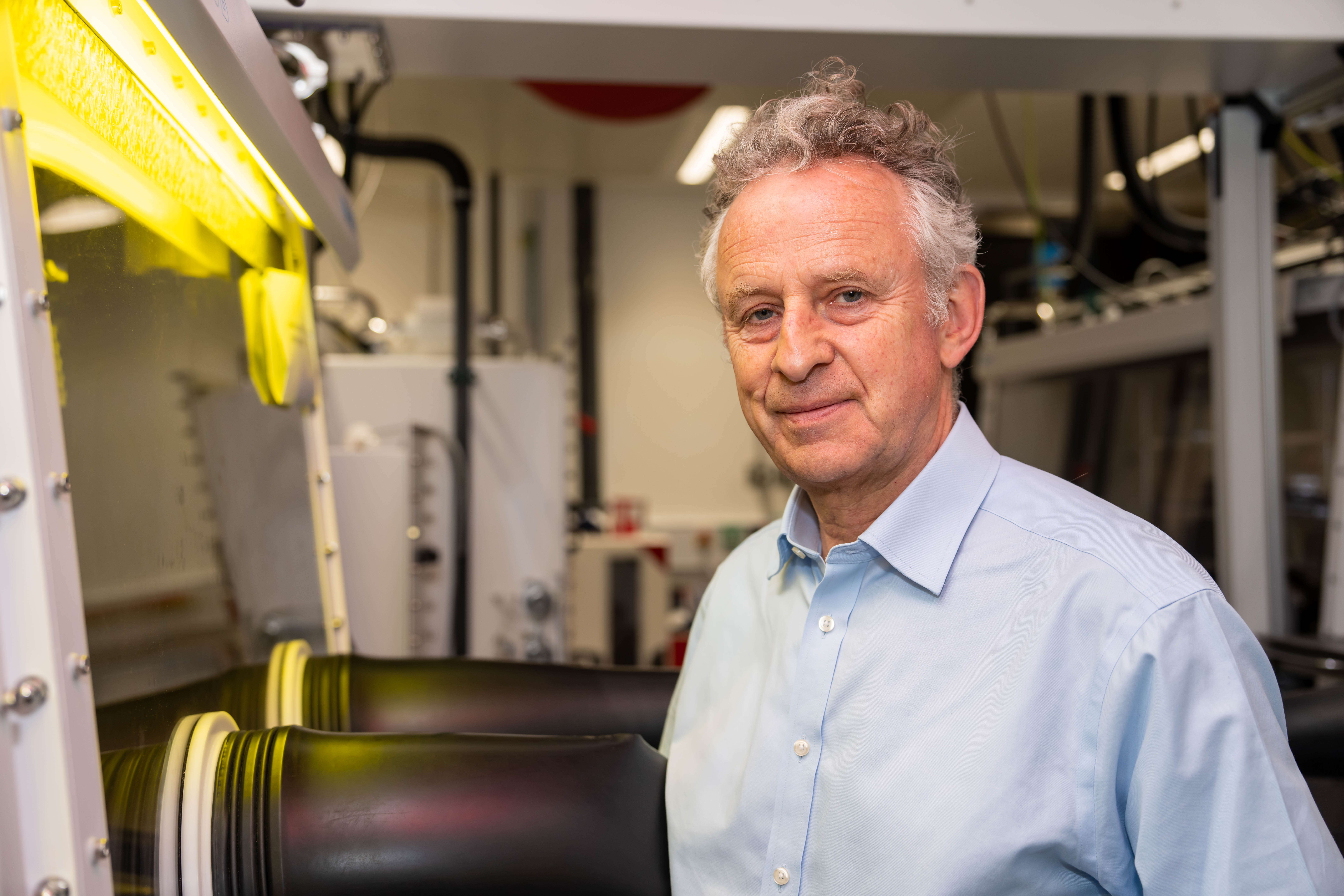Isaac Newton Medal 2024 bestowed on pioneering physicist
“Today’s world faces many challenges which physics will play an absolutely fundamental part in addressing”
Professor Sir Richard Friend FRS, Director of Research at the Cavendish Laboratory and Fellow of St John’s College, has been awarded the 2024 Isaac Newton Medal and Lecture – the most prestigious prize of the Institute of Physics.
The award, which recognises groundbreaking physicists, honours Sir Richard for his pioneering and enduring work on the fundamental electronic properties of molecular semiconductors and in their engineering development, particularly for use in light-emitting diodes (LEDs) and solar cell technology.
The IOP is the professional body and learned society for physics, and the leading body for practising physicists in the UK and Ireland. Its yearly awards celebrate physicists at every stage of their career, with the Isaac Newton Medal and Lecture given for world-leading contributions to physics by individuals of any nationality.

“I am immensely proud of this award and the recognition of our work,” said Sir Richard. “Our Cambridge group helped set up the framework for the field of molecular semiconductors, showing new ways to improve how these materials can separate charges and emit light.”
The Isaac Newton Medal and Lecture was established in 2009 and notable awardees include former Nobel Prize winners.
Sir Richard’s research is transforming the efficiency of solar cells, dramatically boosting the prospects of cheap electricity powered by the sun.
He and his team are pioneers in creating thin-layer devices using organic materials, showing that these materials could work effectively, even when they were not perfectly structured, unlike traditional inorganic materials. This innovation opened the door to new uses of thin-film transistor arrays that can be used in flexible electronics, including displays for e-readers and LCD screens.
Along with honouring individuals, the IOP Awards recognise and celebrate companies that are successful in the application of physics and innovation, as well as employers who demonstrate their commitment and contribution to scientific and engineering apprenticeship schemes.
Professor Sir Keith Burnett, IOP President, said: “Today’s world faces many challenges which physics will play an absolutely fundamental part in addressing, whether its securing the future of our economy or the transition to sustainable energy production and net zero. Our award-winners are in the vanguard of that work.”
After discovering that semiconducting polymers could also be used in LEDs, Sir Richard co-founded Cambridge Display Technology to develop polymer LED technology for displays. The company is now part of the Sumitomo Chemical Company and supports a fully commercialised technology.
Sir Richard and his team are currently working on molecular semiconductors that have overall electron spin. “We can set this spin to raise LED efficiency, and very surprisingly, to control the colour of emitted light," he said.
Sir Keith said each award-winner ‘has made a significant and positive impact in their profession, whether as a researcher, teacher, industrialist, technician or apprentice’.
He added: “There is so much focus today on the opportunities generated by a career in physics and the potential our science has to transform our society and economy and I hope the stories of our winners will help to inspire future generations of scientists."
Find out more about the 2024 IOP Awards
Published: 15/10/2024